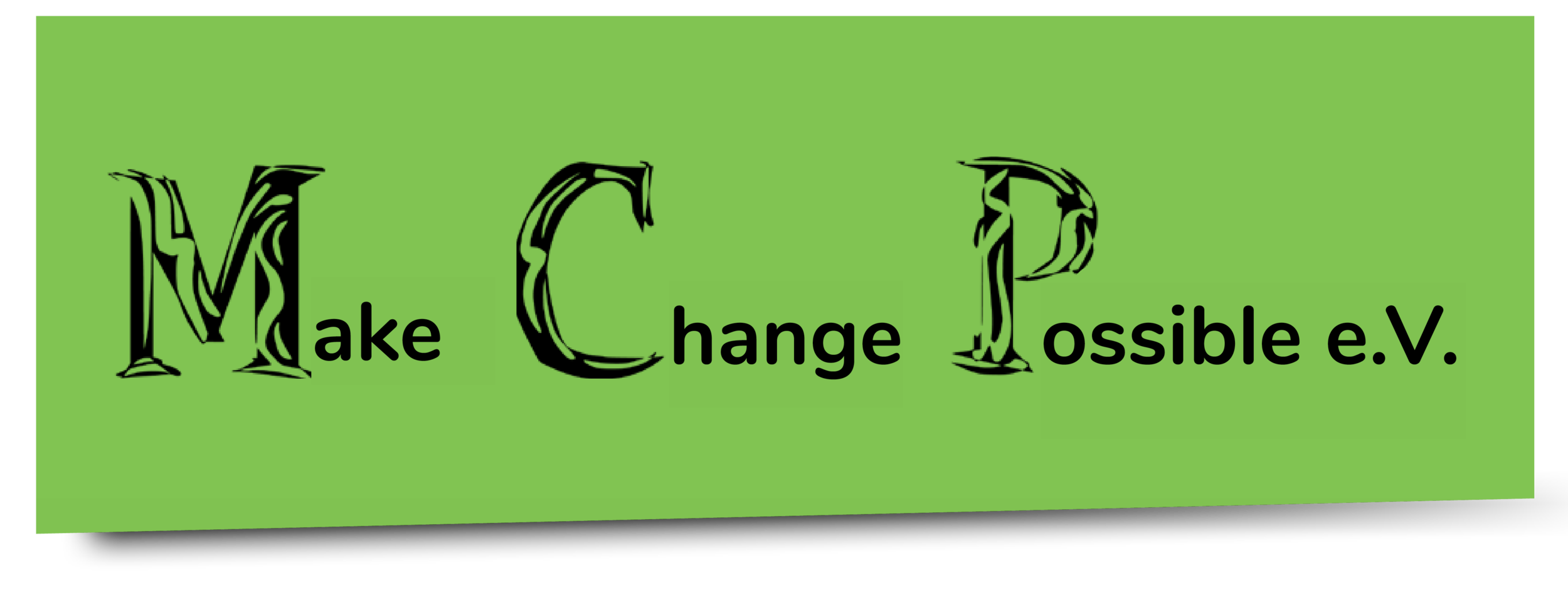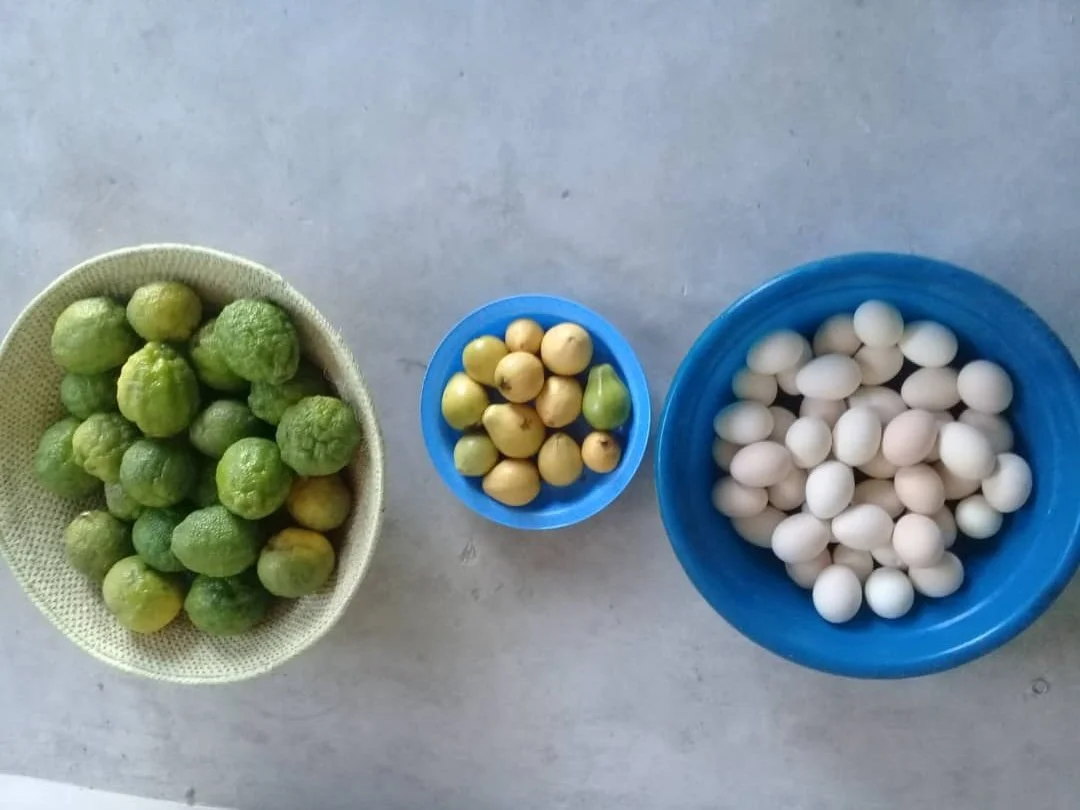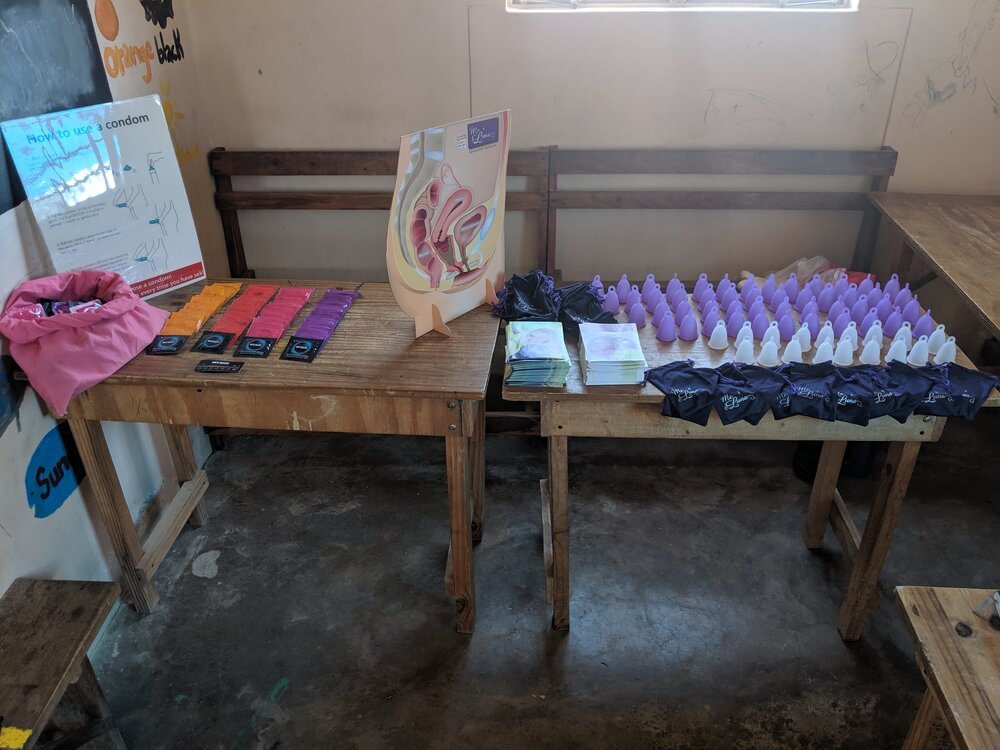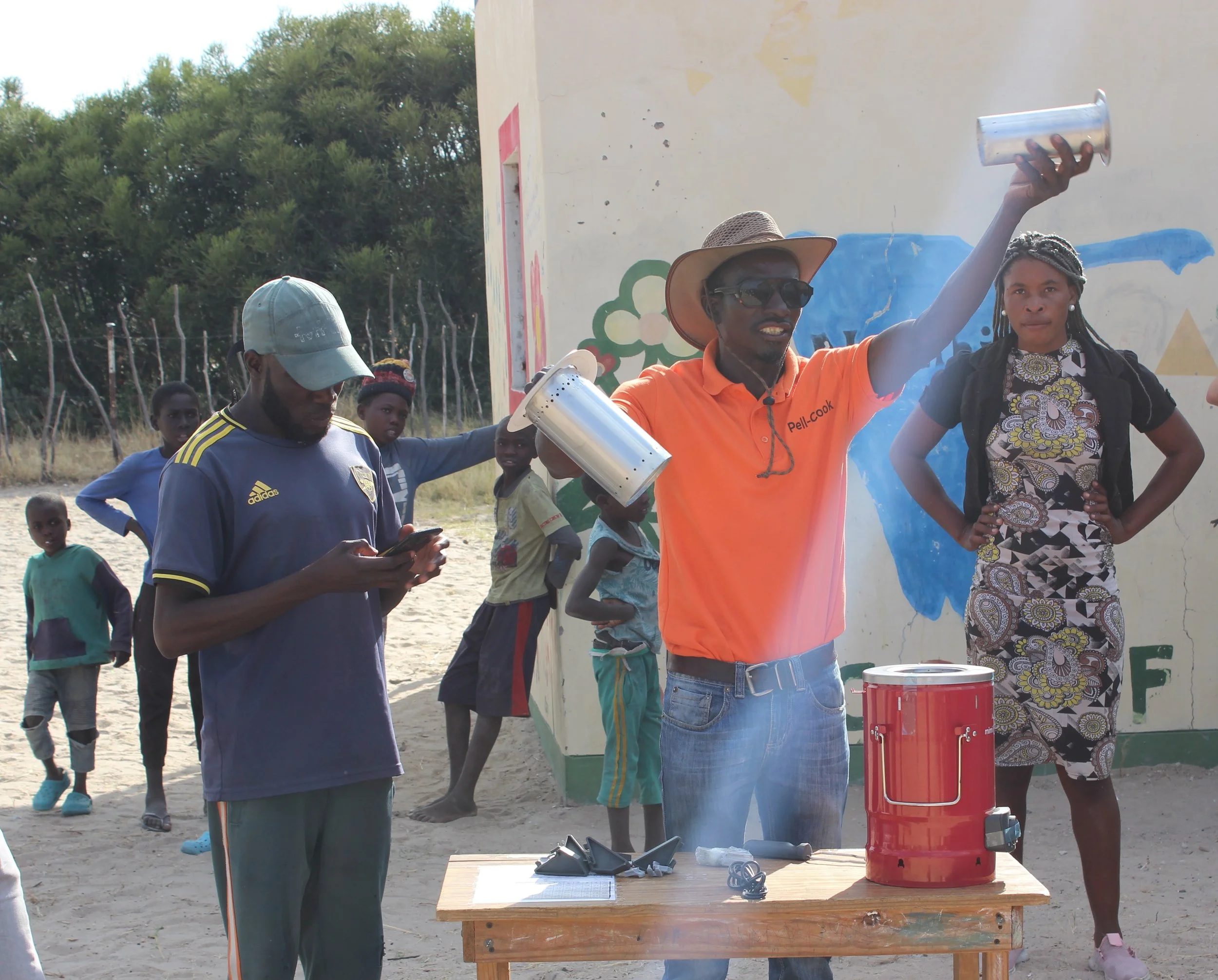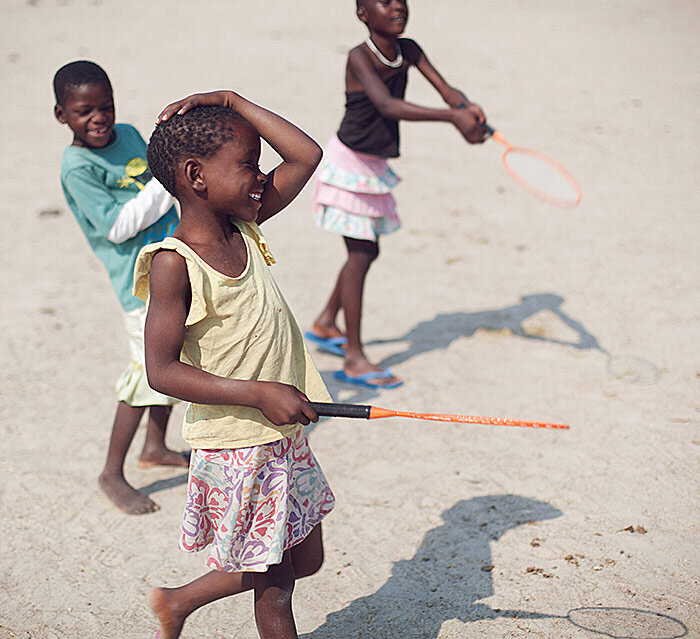
About the Mayana Community Project
The Mayana Community is a rural community in the Kavango-East region in the very north of Namibia.
We support the Mayana community year-round in running programs and projects to improve education, nutrition, health, and business development aiming for sustainability and independence.
Our Impact Areas
Programs & Projects
Mayana Meho Kindergarten
The Mayana Meho Kindergarten prepares 50 children for school every year, following the official Namibian curriculum. Along with their education, the children receive daily meals through the feeding scheme, ensuring balanced nutrition. Pre-primary education plants the seeds of knowledge, giving children a strong foundation for learning and helping to empower their community and reduce poverty for a brighter future.
The kindergarten is led by Lenhilde, who teaches ages 5 to 6, and Rosalia, who teaches ages 4 to 5, with support from volunteers Renhilde and Victoria. All four women are furthering their studies in primary education with the help of MCP’s educational funding support.
The Kindergarten was started by a local woman under a tree. In 2011, the MCP team helped construct a small shelter made of wood and reeds. By 2013, the first classroom was built, and in 2017, a larger second classroom was added.
Kindergarten Feeding Scheme
The feeding scheme at Meho Kindergarten is designed to improve the nutrition of children, many of whom only receive one meal a day at home, typically consisting of millet for dinner. To combat malnutrition, the children are provided with:
Daily bread rolls (carbohydrates) supplied by local women, creating a business opportunity for them.
Peanut butter (fats), served with the bread rolls to boost nutrition.
Eggs (protein), once a week, sourced from the Mayana Meho Chicken House.
Vegetable soup with noodles or chicken (vitamins and protein), twice a week, depending on the season.
Onion tea to provide warmth and help prevent and soothe the common cold, in the winter months.
Seasonal fruits such as mango and guava, grown in the orchard at the Mayana Meho Guesthouse.
Teachers monitor the children’s health by recording their height and weight regularly. Additionally, the local Sit & Knit Group makes scarves, hats, jerseys, and socks for the children during winter to further support their wellbeing.
Sit and Knit Group
The Sit and Knit group, established in 2017, consists of women of various ages from the local community. They sew and knit essential items like hats, vests, socks, and scarves to provide warm clothing for children during cold days. The women are highly motivated and eager to expand their skills, including learning how to knit long-sleeved sweaters. This initiative not only equips the children with much-needed warm clothing but also empowers the women by teaching them valuable knitting techniques and supporting the community.
Chicken House
The Chicken House Program was launched in 2016 to support the kindergarten’s feeding scheme, ensuring a steady supply of protein-rich food, especially during times of drought. The program maintains 50 layer hens that provide eggs for the children’s meals, while surplus eggs are sold to the local community. This income helps sustain the program and provides a small income for its leader, Martha. Once a year, the hens are butchered, with their meat contributing to the soup served at the kindergarten, further enhancing the nutritional value of the children’s meals.
Community Office
The Community Office, located at the Mayana Meho Kindergarten & Community Centre, provides essential services such as printing, photocopying, and document typing, allowing community members to avoid the cost and time of traveling to Rundu. Managed by Evalistus, the office also generates income for MMF and project leaders. In addition, the office offers theoretical driving education, run by Joseph, enabling locals to complete their driving courses within the community. Initially one of the first projects started with MCP’s help, the office was paused due to security and electricity challenges but was relaunched in 2022 after the kindergarten was connected to the power grid and a live-in caretaker moved onto the premises.
Educational Funding Support
We provide funds for Mayana community members to further their education in return for contributing to their community, so that personal educational developments benefit the whole community. Funding education that fits the candidate's abilities, qualifications and the community’s needs, provides sustainable improvements for both the candidate and the community.
Our current recipients are:
Lenhilde is pursuing a Bachelor of Education in Junior Primary Education at Namibia College of Open Learning (NAMCOL), after successfully completing her Diploma in Junior Primary Education from the Institute of Open Learning (IOL)
Gerhard is pursuing a Bachelor in Human Resource Management at Namibia University of Science and Technology (NUST)
Reinhilde and Victoria are pursuing a Diploma in Junior Primary Education at the Institute of Open Learning (IOL)
Rosalia is pursuing a Certificate in Early Childhood Development at the Namibia College of Open Learning (NAMCOL)
Boys & Girls Club
The Boys and Girls Club operates after school, offering young people in the community a safe and supportive environment to learn about essential topics such as sexual and reproductive health, their rights, and effective menstrual health management. Through this program, girls also receive reusable pads, which are hand-sewn by skilled women from the community, fostering both empowerment and sustainability. This initiative not only equips young people with crucial knowledge but also strengthens community bonds by engaging local women in creating practical, eco-friendly solutions for menstrual care.
Disaster Relief & Emergency Health Fund
The program is structured to support active team members during emergencies, ensuring the continuity of crucial projects.
The Disaster Relief program is structured to support active team members during emergencies, ensuring the continuity of crucial projects. In Namibia, where food security is frequently jeopardized by severe droughts, locust plagues, and other natural disasters, the need for such support is critical. When food supplies are at risk, Disaster Relief steps in to provide essential items—such as maize meal, canned beans, and cooking oil—to active team members in Mayana. These efforts address immediate nutritional needs, helping sustain both team members and their work through challenging times.
The Emergency Health Fund provides critical healthcare access in times of health emergencies. This support is especially meaningful given Namibia’s healthcare challenges, such as long waiting times, medication shortages, and limited public resources. Through the fund, team members can access private care, covering doctor visits at the Rundu clinic, medical tests, prescribed medications, and necessary hospital stays. Recognizing that projects can’t progress when loved ones are unwell, the Emergency Health Fund also extends care to the dependents of active MMF members, offering team members the peace of mind that both they and their families are looked after when it matters most.
Climate Adaptation Initiative
In June 2022, we launched our Climate Adaptation Initiative, delivering a specially curated climate package to 40 families in the village. Each package included a guava tree, a Mimi Moto stove with instructions, a solar panel to charge the stove’s battery, and a 20 kg bag of marula nuts as stove fuel. This initiative reduces reliance on firewood, sparing residents the long walks needed to collect it, while helping decrease the feeding scheme’s contribution to deforestation and bush encroachment. The solar panel enables families to charge the stove as well as other electronic devices, and the stove itself is much more efficient than open fires. The marula nuts serve not only as fuel but can also be used as fertilizer afterwards. Our entire MCP and MMF team, along with volunteers and Joseph’s children, played an active role in implementing this project. We are now evaluating interest among other families to potentially expand access to these climate packages.
Please Consider Supporting our Work 🫶🏿
Every contribution – no matter how big or small – helps us make change possible.
